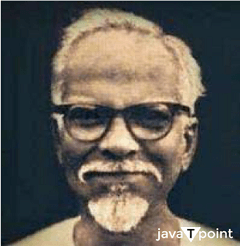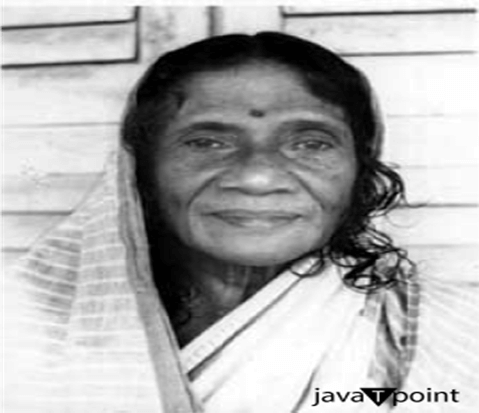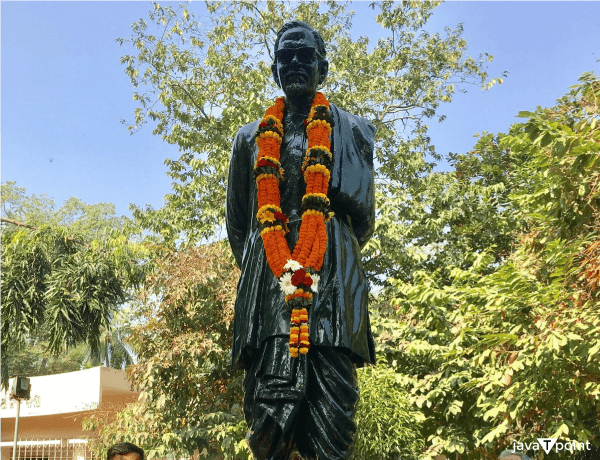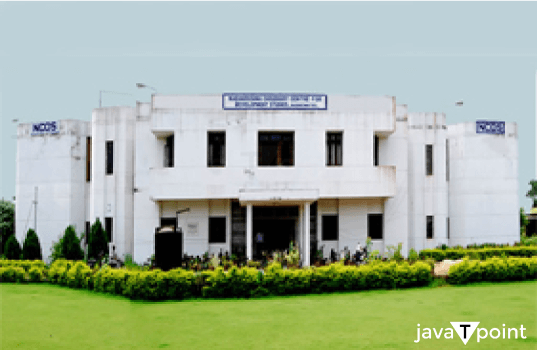Nabakrushna Chaudhury
Nabakrushna Choudhury was an Indian politician and activist. He was a famous politician and social worker of his time and he has served as Chief Minister of the Indian state of Odisha. He was an Indian freedom fighter who participated in the Non-Cooperation, Civil Disobedience, and Peasant Movements. He devoted all his life to social goals. Nabakrushna Chaudhury was popularly known as "Nabababu". Early Life and Education of Nabakrushna ChoudhuryNabakrushna was born on 23rd November 1901 in Jagatsinghpur District, Odisha, as the son of Mr. Gokulananda Choudhury. His father was a great advocate. He had an elder brother, Gopabandhu Choudhury, who resigned from British government service for social service. Nabakrushna Choudhury studied at the Pyari Mohan Academy, Cuttack. He completed his studies for the Matriculation Examination at age 15 but had to wait a year due to age restrictions and eventually passed the examination with good division. In 1917, he was admitted to Ravenshaw College, Cuttack. While studying for a B.A., he discontinued his college to join the non-cooperation movement and to work in social service. When he lost his father around this time he stayed under the care and guidance of his elder brother. In 1922, he went to Sabarmati Ashram to learn about Khadi- spinning, weaving principles, and philosophy and stayed with Gandhiji for about two years. When returned from Sabarmati, Nabakrushna tried to organize Gandhian programs in Odisha. He and his brother were in a school at Alakashram, which his brother established. In 1925, Nabakrushna went to Shantiniketan for further studies as suggested by Mahatma Gandhi. Married life of NabakrushnaDuring the ten-month stay of Nabakrushna at Shantiniketan, he came in contact with Malati Sen, whom he married in 1927. After marriage, Nabakrushna Chaudhury and Malati Devi decided to lead a simple life. They went to Tarikund, a village near Jagatsinghapur. At Tarikund, some land belonging to Nabakrushna's father was available for cultivation. At Tarikund, besides agriculture, literacy and adult education demanded the involvement of Naba Babu and Malati Devi. Malati Devi used to motivate the women to go to night school. She used to visit both Hindu and Muslim homes. In 1928, their eldest daughter, Uttara, and in 1931 a son was born. 
Malati Sen Promotion of Oriya Language by Nabakrushna ChoudharyNabakrushna had realized for quite some time that a people-oriented government has to use Oriya as its language for communication and administration. Therefore, he formulated rules for using Oriya in the administrative process. As an MLA, Nabakrushna usually spoke in Oriya in the Assembly. When the Odisha Legislative Assembly was constituted in 1946, the question of the Oriya language to be used in the Assembly was raised. As the speaker, Lai Mohan Patnaik desired that English be used as before. But Nabababu demanded that Oriya, the people's language, be used instead. Many senior officers also opposed Nabababu's decision to use Oriya as the language for communication and administration. In 1954, Nabababu passed the "Official Language Act," which required Oriya as the language to be used for administration. An Encyclopedia of the Oriya Language was prepared. Oriya typewriters were also fabricated. But all these initiatives he took were discontinued after he left the Government in October 1956. Nabababu was the first chief minister who dared to introduce Oriya as an official language. He tried to make the mother tongue of the people the language of governance. He, single-handedly, with determination, tried to implement the scheme, though the entire bureaucracy was against it. Many in his party were also against the proposal. In the previous assemblies, he spoke in Oriya whenever he participated in debates. First Imprisonment of Nabakrushna ChoudhuryOn 18 March 1930, Lavana Satyagraha, also known as Salt Satyagraha or Salt March, was initiated by Mahatma Gandhi. This was in response to the law enacted by the British to ban the people from collecting salt out of seawater in the coastal areas of Gujarat and Odisha. Inchudi in Odisha came to the limelight. Naba Babu participated in the "No-Tax Campaign" and was arrested in July 1930. He used to study in the prison and organize games and gymnastics for his fellow prisoners. Nabababu came to Tarikund after being released from Hazaribagh Jail. He created a small group within the Congress and began editing and publishing a journal named "Sarathi". Malati Devi sold her ornaments to meet the recurring costs of 'Sarathi'. "Sarathi" was the mouthpiece of small farmers and laborers. When the Congress Socialist Party was formed in India with Ram Manohar Lohia, Acharya Narendra Dev, and Jayaprakash Narayan as its founders, Nabababu's small group was merged into this. He also took initiative to organize The Nava Yuga Sahitya Sansad that aimed to create progressive literature in Odisha. The Political LifeOn 1st April 1936, Odisha became a separate province. In 1937, the Odisha Provincial Legislative Assembly elections were held for the first time. Nabababu contested against Rai Bahadur Chintamani Acharya from the Tirtal-Ersama constituency and won the election with a huge majority. As an MLA, he was always worried about for the betterment of poor in Odisha. He also made efforts and succeeded in stopping Naxalites in Koraput and elected to the legislative assembly in 1937. In 1946, he became finance minister in the Harekrushna Mahtab ministry. He resigned from his post because his son died in 1948. On 12 May 1950, he became the Chief Minister of Odisha. He worked as the Chief Minister till 1956. Then, he resigned from his post, left the party, and started serving the country. Some of his works include-
Post-Independence LifeIn independent India, he continued serving as revenue minister till April 1948. As the revenue minister, he led the ''Land Tenure and Land Revenue Committee''. This committee recommended the abolition of the Zamindari System and other intermediaries. He also introduced the Anchal Shasan system, which aimed to decentralize local administration. Later, he resigned from his post due to family circumstances. Jawaharlal Nehru wanted him to return to the Government. Therefore, later, in 1950, he became Odisha's Chief Minister. The Government resigned in February 1952 to make way for independent India's first elected government. The First general election of independent India was held in 1951-1952. The Oriya-speaking princely states merged with the Province of Odisha (then called Orissa), and elections were held for a common legislature. Choudhury won the election as MLA from Barachana. Congress became the single largest party but short of a majority. However, with the support of six independent MLAs, he assumed the post of Chief Minister. Work done under Nabakrushna's Chief Ministership

Nabakrushna Choudhury Centre for Development Studies
The Nabakrushna Choudhury Centre for Development Studies (NCDS), established in March 1987, is registered under the Societies Registration Act of 1860. It has been jointly funded by the Indian Council of Social Science Research (ICSSR), the Ministry of Human Resource Development, the Government of India, and the Government of Odisha. Focusing on socio-economic research, this institute is the only one that serves as a policy think tank in Odisha. NCDS is managed by a Board of Governors (BOG) constituted by the Government of Odisha. The members of the BOG comprise eminent academicians, government administrators, and nominees of the Government of Odisha and the ICSSR. The objectives of NCDS are indicated below;
By mid-June 1984, Nabababu fell sick at the age of 83, on 24th July 1984, he died from a massive heart attack.
Next TopicPreethi Srinivasan
|
 For Videos Join Our Youtube Channel: Join Now
For Videos Join Our Youtube Channel: Join Now
Feedback
- Send your Feedback to [email protected]
Help Others, Please Share









